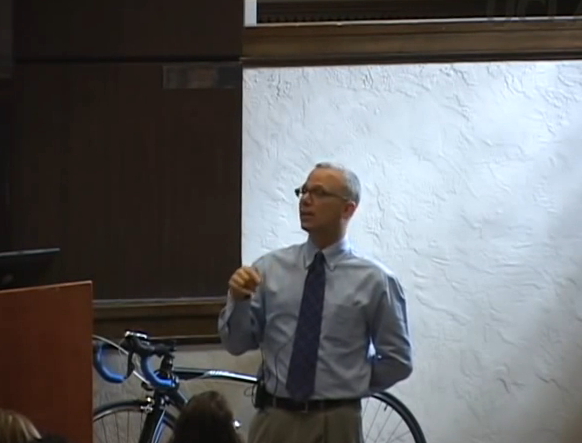As effective management of individualized knowledge within an organization is recognized as a core factor in achieving sustainable performance, organizations are increasing their investment in knowledge management. However, as failure cases related to...
http://chineseinput.net/에서 pinyin(병음)방식으로 중국어를 변환할 수 있습니다.
변환된 중국어를 복사하여 사용하시면 됩니다.
- 中文 을 입력하시려면 zhongwen을 입력하시고 space를누르시면됩니다.
- 北京 을 입력하시려면 beijing을 입력하시고 space를 누르시면 됩니다.
https://www.riss.kr/link?id=A107852868
- 저자
- 발행기관
- 학술지명
- 권호사항
-
발행연도
2021
-
작성언어
Korean
- 주제어
-
등재정보
KCI등재
-
자료형태
학술저널
- 발행기관 URL
-
수록면
186-213(28쪽)
-
KCI 피인용횟수
0
- 제공처
-
0
상세조회 -
0
다운로드
부가정보
다국어 초록 (Multilingual Abstract)
As effective management of individualized knowledge within an organization is recognized as a core factor in achieving sustainable performance, organizations are increasing their investment in knowledge management. However, as failure cases related to knowledge management to occur, active participation of organizational insiders is required. The purpose of this study is to suggest conflicts, which are a negative motivating factor that affects knowledge hoarding, to confirm the moderating effect of knowledge territoriality, and to suggest the direction of organizational efforts to reduce conflicts. In this study, the research hypothesis was presented through precedent research in the field of knowledge management and stress, and samples were obtained by conducting an online questionnaire to employees of organizations that introduced knowledge management policies by applying a questionnaire technique. And, the research hypothesis was verified through structural equation modeling. As a result of the analysis, role conflict and relationship conflict had a positive effect on knowledge hoarding, and knowledge territoriality strengthened the relationship between the two factors. And, organization justice and organization trust reduced individual conflicts within the organization. This study suggests a direction to reduce the negative behaviors of individuals toward knowledge management policies.
목차 (Table of Contents)
- Abstract
- Ⅰ. 서론
- Ⅱ. 이론적 배경
- Ⅲ. 연구 방법
- Ⅳ. 실증분석 결과
- Abstract
- Ⅰ. 서론
- Ⅱ. 이론적 배경
- Ⅲ. 연구 방법
- Ⅳ. 실증분석 결과
- Ⅴ. 결론
- 참고문헌
참고문헌 (Reference)
1 유정화, "항공사 객실승무원의 상호작용공정성, 조직신뢰, 조직냉소주의, 조직시민행동의 구조적 관계" 한국서비스경영학회 20 (20): 25-47, 2019
2 정소연, "역할스트레스와 종업원 침묵행동 간 관계에서 심리적 주인의식의 매개효과와 상사지원인식의 조절효과" 한국산업및조직심리학회 31 (31): 433-457, 2018
3 김현철, "병원 영양사의 일-가족 갈등, 역할정체성, 직무스트레스, 이직의도 및 고객지향성 간의 구조적 관계 -혼인여부와 조직후원인식의 조절효과를 중심으로-" 한국서비스경영학회 12 (12): 285-313, 2011
4 Li, X., "You reap what you sow: Knowledge hiding, territorial and idea implementation" 2020
5 Anaza, N. A., "What's mine is mine : A study of salesperson knowledge withholding & hoarding behavior" 64 : 14-24, 2017
6 Yuan, Y., "What is bullying hiding? Exploring antecedents and potential dimension of knowledge hiding" 25 (25): 1146-1169, 2020
7 Tsai, M. T., "Understanding knowledge sharing between IT professionals–an integration of social cognitive and social exchange theory" 31 (31): 1069-1080, 2012
8 Lewicki, R. J., "Trustin organizations: Frontiers of theory and research" Sage 114-139, 1996
9 Gillespie, N., "Trust repair after an organization-level failure" 34 (34): 127-145, 2009
10 Tan, H. H., "Toward the differentiation of trust in supervisor and trust in organization" 126 (126): 241-260, 2000
1 유정화, "항공사 객실승무원의 상호작용공정성, 조직신뢰, 조직냉소주의, 조직시민행동의 구조적 관계" 한국서비스경영학회 20 (20): 25-47, 2019
2 정소연, "역할스트레스와 종업원 침묵행동 간 관계에서 심리적 주인의식의 매개효과와 상사지원인식의 조절효과" 한국산업및조직심리학회 31 (31): 433-457, 2018
3 김현철, "병원 영양사의 일-가족 갈등, 역할정체성, 직무스트레스, 이직의도 및 고객지향성 간의 구조적 관계 -혼인여부와 조직후원인식의 조절효과를 중심으로-" 한국서비스경영학회 12 (12): 285-313, 2011
4 Li, X., "You reap what you sow: Knowledge hiding, territorial and idea implementation" 2020
5 Anaza, N. A., "What's mine is mine : A study of salesperson knowledge withholding & hoarding behavior" 64 : 14-24, 2017
6 Yuan, Y., "What is bullying hiding? Exploring antecedents and potential dimension of knowledge hiding" 25 (25): 1146-1169, 2020
7 Tsai, M. T., "Understanding knowledge sharing between IT professionals–an integration of social cognitive and social exchange theory" 31 (31): 1069-1080, 2012
8 Lewicki, R. J., "Trustin organizations: Frontiers of theory and research" Sage 114-139, 1996
9 Gillespie, N., "Trust repair after an organization-level failure" 34 (34): 127-145, 2009
10 Tan, H. H., "Toward the differentiation of trust in supervisor and trust in organization" 126 (126): 241-260, 2000
11 Lin, M., "To empower or not to empower? Multilevel effects of empowering leadership on knowledge hiding" 89 : 102540-, 2020
12 Ambrose, M. L., "The role of overall justice judgments in organizational justice research : A test of mediation" 94 (94): 491-500, 2009
13 Nonaka, I., "The knowledge-creating company: How Japanese companies create the dynamics of innovation" Oxford university press 1995
14 Miković, R., "The integration of social capital and knowledge management–The key challenge for international development and cooperation projects of nonprofit organizations" 38 (38): 515-533, 2020
15 Haug, A., "The implementation of enterprise content management systems in SMEs" 25 (25): 349-372, 2012
16 Top, M., "The effect of organizational justice and trust on job stress in hospital organizations" 50 (50): 558-566, 2018
17 Ragu-Nathan, T. S., "The consequences of technostress for end users in organizations : Conceptual development and empirical validation" 19 (19): 417-433, 2008
18 Singh, S. K., "Territoriality, task performance, and workplace deviance : Empirical evidence on role of knowledge hiding" 97 : 10-19, 2019
19 Brown, G., "Territoriality in organizations" 30 (30): 577-594, 2005
20 Wang, X., "Technostress among university teachers in higher education : A study using multidimensional person-environment misfit theory" 10 : 1791-, 2019
21 Ayyagari, R., "Technostress : Technological antecedents and implications" 35 (35): 831-858, 2011
22 Lin, G. C., "Structural equation models of latent interactions : Clarification of orthogonalizing and double-mean-centering strategies" 17 (17): 374-391, 2010
23 Chow, W. S., "Social network, social trust and shared goals in organizational knowledge sharing" 45 (45): 458-465, 2008
24 Hoyle, R. H., "Sample size, reliability, and tests of statistical mediation" 1 : 195-222, 1999
25 Ackfeldt, A. L., "Revisiting the role stress‐commitment relationship: Can managerial interventions help?" 47 (47): 353-374, 2013
26 Nunnally, J. C., "Psychometric Theory" McGraw-Hill 1978
27 Brown, G., "Psychological ownership, territorial behavior, and being perceived as a team contributor : The critical role of trust in the work environment" 67 (67): 463-485, 2014
28 Judge, T. A., "Organizational justice and stress : The mediating role of work-family conflict" 89 (89): 395-404, 2004
29 Jahanzeb, S., "Organizational injustice and knowledge hiding : The roles of organizational dis-identification and benevolence" 59 (59): 446-462, 2021
30 Tziner, A., "Organizational citizenship behavior, organizational justice, job stress, and workfamily conflict : Examination of their interrelationships with respondents from a non-Western culture" 30 (30): 35-42, 2014
31 Colquitt, J. A., "On the dimensionality of organizational justice : A construct validation of a measure" 86 (86): 386-400, 2001
32 Dalkir, K., "Knowledge management in theory and practice" Routledge 2013
33 Connelly, C. E., "Knowledge hiding in organizations" 33 (33): 64-88, 2012
34 Han, M. S., "Knowledge hiding as the dark side of competitive psychological climate" 42 (42): 195-207, 2020
35 Zion Market Research, "Knowledge Management Market by Offering; by Organization size: Global Industry Analysis, Size, Share, Growth, Trends, and Forecast, 2016 - 2025"
36 Peng, H., "Job-and organization-based psychological ownership : Relationship and outcomes" 30 (30): 151-168, 2015
37 Agarwal, V., "Investigating the convergent validity of organizational trust" 17 (17): 24-39, 2013
38 Guinot, J., "Interpersonal trust, stress and satisfaction at work : An empirical study" 43 (43): 96-115, 2014
39 Losada-Otálora, M., "Interpersonal conflict at work and knowledge hiding in service organizations : The mediator role of employee well-being" 13 (13): 63-90, 2020
40 Nadeem, M. A., "Impact of shared goals on knowledge hiding behavior : The moderating role of trust" 59 (59): 1312-1332, 2020
41 Connelly, C. E., "How perpetrators and targets construe knowledge hiding in organizations" 24 (24): 479-489, 2015
42 Yao, Z., "Gossip is a fearful thing : The impact of negative workplace gossip on knowledge hiding" 24 (24): 1755-1775, 2020
43 Howard, L. W., "Flight from unfairness : Effects of perceived injustice on emotional exhaustion and employee withdrawal" 25 (25): 409-428, 2010
44 Semerci, A. B., "Examination of knowledge hiding with conflict, competition and personal values" 30 (30): 111-131, 2019
45 Harr, A., "Evaluating the individual and organizational impact of enterprise content management systems" 25 (25): 1413-1440, 2019
46 Fornell, C., "Evaluating structural equation models with unobservable variables and measurement error" 18 (18): 39-50, 1981
47 Tooranloo, H. S., "Evaluating knowledge management failure factors using intuitionistic Fuzzy FMEA approach" 57 (57): 183-205, 2018
48 Wu, D., "Empirical study of knowledge withholding in cyberspace : Integrating protection motivation theory and theory of reasoned behavior" 105 : 106229-, 2020
49 Chae, S., "Effects of task complexity on individual creativity through knowledge interaction : A comparison of temporary and permanent teams" 42 : 138-148, 2015
50 Bentler, P. M., "Comparative fit indexes in structural models" 107 (107): 238-246, 1990
51 Podsakoff, P. M., "Common method biases in behavioral research : A critical review of the literature and recommended remedies" 88 (88): 879-903, 2003
52 Huo, W., "Antecedents and intervention mechanisms : A multi-level study of R&D team’s knowledge hiding behavior" 20 (20): 880-897, 2016
53 Schaubroeck, J., "Antecedents and consequences of role stress : A covariance structure analysis" 10 (10): 35-58, 1989
54 Wixom, B. H., "An Empirical investigation of the factors affecting data warehousing success" 25 (25): 17-41, 2001
55 Adams, J. S., "Advances in experimental social psychology (Vol. 2)" Academic Press 267-299, 1965
56 Wang, Y., "A user requirement driven framework for collaborative design knowledge management" 33 : 16-28, 2017
57 Jehn, K. A., "A multimethod examination of the benefits and detriments of intragroup conflict" 40 (40): 256-282, 1995
58 Bhattacharya, R., "A formal model of trust based on outcomes" 23 (23): 459-472, 1998
동일학술지(권/호) 다른 논문
-
의료서비스조직에서 중간관리자의 코칭리더십이 조직유효성에 미치는 영향에 관한 연구
- 한국서비스경영학회
- 양진영(Yang, Jin Young)
- 2021
- KCI등재
-
- 한국서비스경영학회
- An, Di(안디)
- 2021
- KCI등재
-
정부의 규제와 규제개선정책이 물류기업의 혁신 효율성에 미치는 영향 연구
- 한국서비스경영학회
- 김영준(Kim, Yeong Jun)
- 2021
- KCI등재
-
항공사 객실승무원의 직무역량이 브랜드 이미지와 재이용의도에 미치는 영향
- 한국서비스경영학회
- 첸드돌람(GANKHUYAG TSENDDULAM)
- 2021
- KCI등재
분석정보
인용정보 인용지수 설명보기
학술지 이력
| 연월일 | 이력구분 | 이력상세 | 등재구분 |
|---|---|---|---|
| 2026 | 평가예정 | 재인증평가 신청대상 (재인증) | |
| 2020-01-01 | 평가 | 등재학술지 유지 (재인증) |  |
| 2017-01-01 | 평가 | 등재학술지 유지 (계속평가) |  |
| 2015-10-08 | 학술지명변경 | 외국어명 : Jounal of Korea Service Management Society -> Journal of Korea Service Management Society |  |
| 2013-01-01 | 평가 | 등재 1차 FAIL (등재유지) |  |
| 2010-01-01 | 평가 | 등재학술지 유지 (등재유지) |  |
| 2007-01-01 | 평가 | 등재학술지 선정 (등재후보2차) |  |
| 2006-01-01 | 평가 | 등재후보 1차 PASS (등재후보1차) |  |
| 2004-07-01 | 평가 | 등재후보학술지 선정 (신규평가) |  |
학술지 인용정보
| 기준연도 | WOS-KCI 통합IF(2년) | KCIF(2년) | KCIF(3년) |
|---|---|---|---|
| 2016 | 0.75 | 0.75 | 0.89 |
| KCIF(4년) | KCIF(5년) | 중심성지수(3년) | 즉시성지수 |
| 0.91 | 0.96 | 1.149 | 0.2 |





 KCI
KCI DBpia
DBpia




